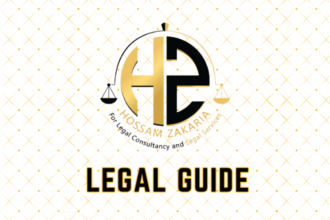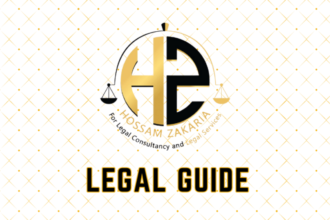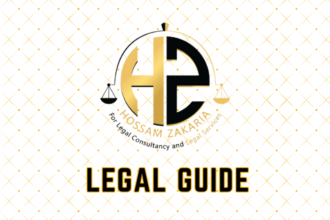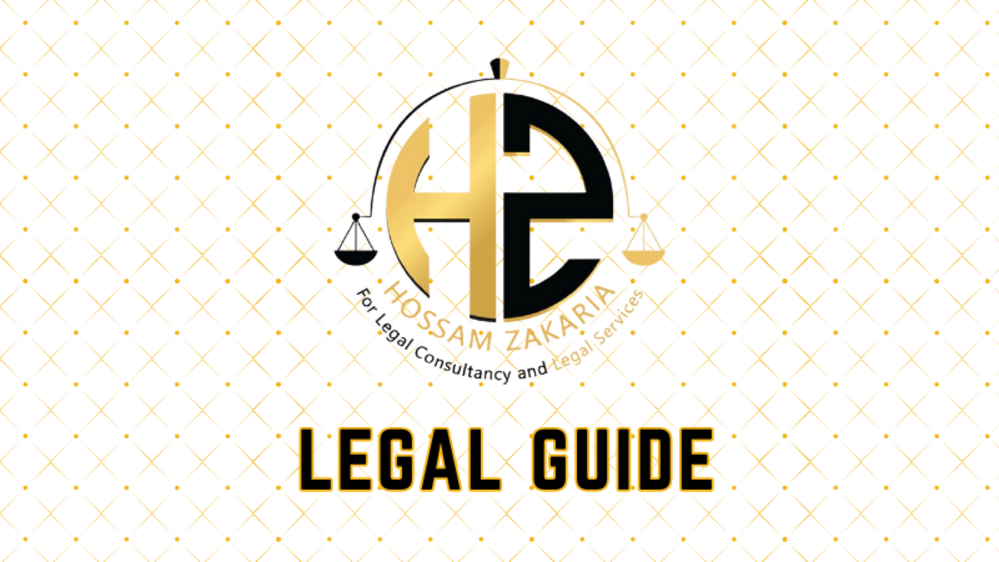Introduction
The business landscape in the United Arab Emirates (UAE) is marked by robust economic growth and an increasingly sophisticated legal environment. Amidst this dynamism, dispute resolution stands out as a critical concern for businesses, multinational corporations, executives, and legal professionals. Arbitration, long favored for its efficiency and confidentiality, has become pivotal in commercial dispute resolution across the UAE. Recent legislative reforms—including the pathbreaking Federal Law No. 6 of 2018 (the UAE Arbitration Law) and following practice guidelines—have greatly reshaped how arbitration agreements and clauses are crafted, interpreted, and enforced. Understanding the nuances of these legal developments is essential for any organization seeking to secure effective dispute resolution outcomes in the UAE. This article delivers an expert analysis on navigating arbitration agreements and clauses under the latest UAE laws, balancing in-depth legal perspective with actionable consultancy guidance, and equipping stakeholders to mitigate risks while capitalizing on the operational advantages of arbitration.
Whether you are revising commercial contracts, considering dispute resolution mechanisms, or managing ongoing matters, this analysis provides the authoritative insights necessary to operate confidently in an evolving regulatory environment.
Table of Contents
- UAE Arbitration Legal Landscape: Laws and Recent Updates
- Key Features of Arbitration Agreements in the UAE
- Enforceability and Validity: Legal Requirements under Federal Law No. 6 of 2018
- Drafting Effective Arbitration Clauses: Best Practices and Pitfalls
- Risks of Non-Compliance and Compliance Strategies
- Case Studies and Practical Analysis
- Comparison: Old vs. New UAE Arbitration Law
- Arbitration Proceedings and Enforcement of Awards
- Conclusion: Key Takeaways and Strategic Outlook
UAE Arbitration Legal Landscape: Laws and Recent Updates
1.1 Regulatory Overview
The primary legislative instrument governing arbitration in the UAE is Federal Law No. 6 of 2018 on Arbitration (the ‘UAE Arbitration Law’), which became effective in June 2018. This law substantially modernized arbitration practice, aligning UAE standards closer to the UNCITRAL Model Law, which is widely recognized as the international benchmark. Supplementing the law are court judgments, ministerial circulars, and procedural guidelines issued by the UAE Ministry of Justice and arbitral institutions. Other relevant frameworks include the DIAC Rules 2022, ADCCAC Rules, and specific decrees applicable in the Dubai International Financial Centre (DIFC) and Abu Dhabi Global Market (ADGM), each of which have their own arbitration laws modeled on global best practices.
Significant recent developments include enhanced digitization of proceedings, stricter requirements for arbitrator independence, and express recognition of electronic signatures. Amendments in 2021–2023, such as Federal Decree-Law No. 15 of 2020 (amending certain evidentiary requirements) and various ministerial practice notes, further clarify procedural issues, particularly on the appointment and challenge of arbitrators, and enforcement of awards.
1.2 Why These Updates Matter
Arbitration clauses, once routinely inserted, are now subject to much closer scrutiny by UAE courts. Businesses operating in the UAE must adjust their contractual practices to reflect the updated regulatory landscape and ensure that arbitration agreements remain enforceable, valid, and effective in light of current law. Choosing the right form, venue, institutional framework, and language for arbitration agreements directly affects their utility and legal standing.
Key Features of Arbitration Agreements in the UAE
2.1 Defining the Arbitration Agreement
The UAE Arbitration Law (Article 7) defines an arbitration agreement as ‘an agreement by the parties to submit to arbitration all or certain disputes which have arisen or which may arise between them in respect of a defined legal relationship, whether contractual or not.’ Such an agreement should be in writing, either as a standalone agreement or a clause within a broader contract. Recent practice clarifies that electronic communications, including emails, may constitute written agreements, provided there is clear mutual consent.
2.2 Stipulated Content and Essential Elements
- Identification of parties
- Clear reference to arbitration as the chosen dispute resolution method
- Scope of disputes covered (all or specific categories)
- Arbitration venue and procedural rules (e.g., DIAC, ICC)
- Governing law
- Language of arbitration
- Number and selection method for arbitrators
2.3 Electronic Agreements and Digital Transformation
As per Federal Decree-Law No. 46 of 2021 on Electronic Transactions and Trust Services, electronic signatures and online contract formations are expressly recognized in UAE law, extending their enforceability to arbitration agreements provided other formalities are satisfied.
Enforceability and Validity: Legal Requirements under Federal Law No. 6 of 2018
3.1 In Writing and Mutual Consent
Article 7—8 of the UAE Arbitration Law stipulates that an arbitration agreement must be in writing and clearly demonstrate the parties’ mutual intent to arbitrate. The requirement of clear and unequivocal consent has been reinforced in recent enforcement cases by the Dubai Court of Cassation.
3.2 Capacity and Authority to Bind
Corporate representatives entering into arbitration agreements must have express authority. The court in Case No. 376/2021 (Dubai Appeal) denied enforcement where signatory authority was absent. Ensure board resolutions or powers of attorney are in place, particularly in government contracts, to prevent a challenge on authority grounds.
3.3 Severability and Survival Clauses
Under Article 6, the doctrine of ‘separability’ means that an arbitration clause is treated as independent from the main contract. This ensures that even if the underlying contract is challenged, the clause may survive. Still, recent judicial scrutiny emphasizes ensuring that the scope and wording of the clause are stand-alone, operating independently if disputes arise.
Drafting Effective Arbitration Clauses: Best Practices and Pitfalls
4.1 Choosing Institutional vs. Ad Hoc Arbitration
| Criteria | Institutional Arbitration (e.g., DIAC, ICC) | Ad Hoc Arbitration |
|---|---|---|
| Administration | Managed by an established institution; set rules and framework | Parties manage process; flexible but can be uncertain |
| Costs | Generally higher due to administration fees | Potentially lower, dependent on party cooperation |
| Enforcement | Courts more likely to favour clear, institutional agreements | Risk of challenge if process is unclear |
| Speed | Often faster, due to expert oversight | Varies; can be subject to delays if parties disagree |
4.2 Best Practices for Drafting
- Clarity: Remove all ambiguity on scope and process.
- Consistency: Align arbitration clauses with the governing law and main contract terms.
- Neutral and Fair: Choose a neutral seat, especially where parties are from different jurisdictions.
- Language: Specify which language proceedings will be held in; failure may result in delays or jurisdictional issues.
- Number of Arbitrators: Explicitly state the number and appointment method to avoid later disputes.
- Emergency Relief: Consider including provisions for interim measures.
4.3 Common Pitfalls to Avoid
- Omitting essential elements, like the seat or rules of arbitration
- Contradictory dispute resolution mechanisms (e.g., ‘arbitration or courts’)
- Conferring authority on unauthorised signatories
- Vague drafting leading to jurisdictional challenges
4.4 Sample Checklist: Drafting an Effective Clause
| Checklist Item | Yes/No |
|---|---|
| Is the agreement in writing (including electronic record)? | |
| Are the parties and legal representatives properly identified and authorized? | |
| Is the scope of arbitration clearly defined? | |
| Does the agreement specify institutional rules or ad hoc procedures? | |
| Have governing law and language been stipulated? | |
| Is the appointment and number of arbitrators set? |
Risks of Non-Compliance and Compliance Strategies
5.1 Key Risks of Invalid Arbitration Clauses
- Loss of Intended Dispute Resolution Pathway: Courts may rule that arbitration cannot proceed if the clause is found invalid, resulting in litigation contrary to parties’ intentions.
- Delayed or Non-enforceable Awards: Ambiguities or technical non-compliance can lead to protracted proceedings or refusal to enforce an award.
- Jurisdictional Challenges: Opposing parties may exploit drafting flaws to challenge or delay proceedings.
- Reputational Harm & Cost: Protracted, public litigation can damage business reputation.
5.2 Compliance Strategies: Legal and Practical
- Regularly update contract templates to align with current law and leading institutional rules.
- Provide internal training to contract managers and legal teams on recent arbitration law changes.
- Secure proper authorisations (board resolution, POA) for all signatories to arbitration agreements.
- Make use of arbitration expertise—engage legal counsel with UAE-specific arbitration knowledge, especially for high-stakes or cross-border contracts.
- Audit legacy contracts for compliance with the 2018 arbitration law, amending where deficiencies are found.
Case Studies and Practical Analysis
6.1 Example: The Importance of Clear Language
Case Study: A multinational logistics firm operating in Dubai inserted an arbitration clause referring disputes to ‘the Dubai Chamber’ without specifying DIAC or rules. When a dispute arose, the opposing party contested jurisdiction, claiming ambiguity. The Dubai Court refused to compel arbitration, highlighting the importance of specifying the exact arbitration institution and applicable rules.
6.2 Example: Signatory Capacity
Case Study: A contractor signed a major real estate contract, including an arbitration clause, via a junior manager without express power of attorney. The developer, seeking to evade arbitration, contested authority. The court sided with the developer, emphasizing the necessity of express authority for signatories as per Federal Law No. 6 of 2018 and established judicial precedent.
6.3 Example: Digital Agreements and Enforcement
Hypothetical: Two tech startups finalize an investment deal using an electronic platform, including an e-signed arbitration clause. One party later seeks to avoid arbitration, claiming lack of ‘decision maker’ signature. Citing Federal Decree-Law No. 46 of 2021, a UAE court admits the digital agreement—provided the signatory was duly authorized—demonstrating legal recognition of e-signatures for arbitration agreements.
Comparison: Old vs. New UAE Arbitration Law
| Aspect | Law Prior to 2018 | Federal Law No. 6 of 2018 (Current) |
|---|---|---|
| Formality of Agreement | Strict ‘wet ink’ signature required | Allows electronic signatures, broader interpretation |
| Judicial Intervention | High risk of court intervention; delays | Limited court intervention, courts serve mainly as support role |
| Appointment of Arbitrators | No statutory time limits; possible deadlock | Strict time limits for appointment (15 days in some instances) |
| Challenging Awards | Extensive grounds for challenge; risk of quashing | Restricted grounds, reflecting international best practices |
| Recognition of Arbitration Centers | Limited, ad hoc often not recognized | Explicit recognition of domestic and international institutions |
Arbitration Proceedings and Enforcement of Awards
8.1 Proceedings: Procedural Flexibility and Timelines
Under the UAE Arbitration Law, parties have greater autonomy over procedure, subject to principles of due process and equal treatment. Recent Cabinet Resolutions (notably Cabinet Resolution No. 57 of 2018 as amended) set maximum timelines for the rendering of awards, unless otherwise agreed by parties—helping ensure certainty and efficiency.
8.2 Enforcement: Fast-Track and Safeguards
Crucially, Articles 52–55 establish a streamlined process for seeking court recognition and enforcement of UAE-seated arbitration awards, with decisions to be rendered within 60 days in most cases. The law also sets a high bar for refusing enforcement—limited to procedural irregularities, incapacity, or public policy considerations. Practice guidelines further clarify necessary documents, such as original contract, arbitration agreement, and certified award copies, and make provision for digital filings where permitted by local courts. The UAE Ministry of Justice provides official checklists and procedural templates for practitioners.
8.3 International Enforcement: New York Convention
The UAE is a signatory to the 1958 New York Convention, enabling foreign arbitral awards to be enforced with fewer procedural obstacles, subject to reciprocity and public order limits.
8.4 Visual Aid Suggestion
Visual: Process Flow Diagram—Enforcement of Arbitration Awards in UAE: (1) Award issued by panel; (2) Party applies to local court with required documents; (3) Review by court for procedural compliance; (4) Enforcement order issued or refused on limited grounds.
Conclusion: Key Takeaways and Strategic Outlook
Recent legal advancements—led by Federal Law No. 6 of 2018 and ongoing regulatory guidance—have transformed the arbitration landscape in the UAE, empowering businesses with a modern, efficient, and globally harmonized means of resolving disputes. That progress comes with enhanced expectations for the drafting, administration, and enforcement of arbitration agreements. The necessity to ensure compliance with strict formalities, explicit authority for signatories, digital record safeguards, and alignment with cross-border best practices cannot be overstated. Emerging digitization and consistent institutional practice are set to further address legacy issues and streamline future dispute resolution.
For corporate actors, legal managers, and in-house counsel operating in the UAE, the prudent approach is proactive: audit existing contracts, rigorously train staff, and retain specialized arbitration counsel. Looking ahead, as the UAE continues to refine its legal framework and deepen international engagement, mastery over arbitration clauses will not only mitigate risk but also unlock business agility, reputation, and legal certainty.
Key Best Practices
- Employ clear, specific, and compliant arbitration language in every relevant contract
- Secure express written authority for all signatories
- Stay updated on legislative changes and institutional rules
- Leverage digital tools in contract execution and record-keeping
- Conduct regular contractual ‘health checks’ with UAE legal counsel
For specific consultancy or tailored arbitration clause review, consult your legal advisor or reach out to our firm for expert guidance.



